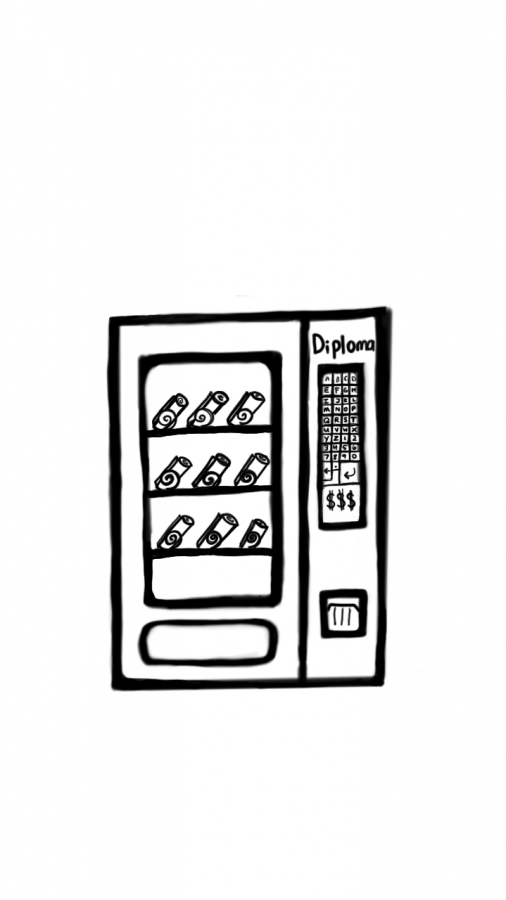In selecting colleges, affordability matters
April 8, 2019
Over the last few months, the senior class has seen their college results rolling in. Despite all the anxiety surrounding acceptances, we’ve seen some great results. The district’s results and outcome report indicates that about a third of district students are being accepted by a highly or most competitive college as rated by Barron’s.
These results are gratifying. They vindicate the effort that students have made throughout their high school careers and the allure of big-name schools can be overwhelming.
That being said, students shouldn’t be blind to the realities of these schools. While the name brand of more prestigious universities does have real benefits, there are times when attending an expensive private school simply doesn’t make financial sense.
The Wall Street Journal reports that colleges’ Class of 2015 will graduate with an average of $35,000 in student loans. To carry that large a debt right out of college dramatically limits choices, whether it involves taking a lower-paying but more fulfilling job or taking on debt to go to graduate school.
Attending college is, by and large, a smart decision. A 2014 Pew Research Center study found that Americans who have graduated college earn 61 percent more than high school graduates, on average. College graduates face a 3.8 percent unemployment rate, compared to a 12.2 percent rate for those who don’t attend.
Those who attend college are at a clear advantage compared to those who don’t. The gap between those who attend different colleges, though, are much smaller. A look at salary data for graduates of popular universities reveals that post-graduation pay variations are considerably smaller, especially given the dramatically higher tuitions of some private universities. A graduate from Fordham University in New York will have roughly the same earning potential as a graduate from the University of Connecticut, despite paying on average $10,000 more a year for their degree, per information from the US Department of Education.
This isn’t to say that public schools are always a better deal. Private schools are often more capable of offering more generous financial aid packages, and recent cuts to university systems in Connecticut and nationwide are pushing up tuitions at public universities. Scholarships and merit aid can also tip the financial scales. Above all, choices of major and available employment opportunities have a bigger impact on earning potential than the school at which a degree is earned.
Of course, earning potential and tuition pricing isn’t everything in making college decisions. All the normal factors that are usually considered are still important; even a great aid package won’t make somebody any happier at a school that’s a terrible fit. Geography, academics, campus life and more all deserve consideration. But responsibly choosing a college means financial factors need to be given serious thought.


